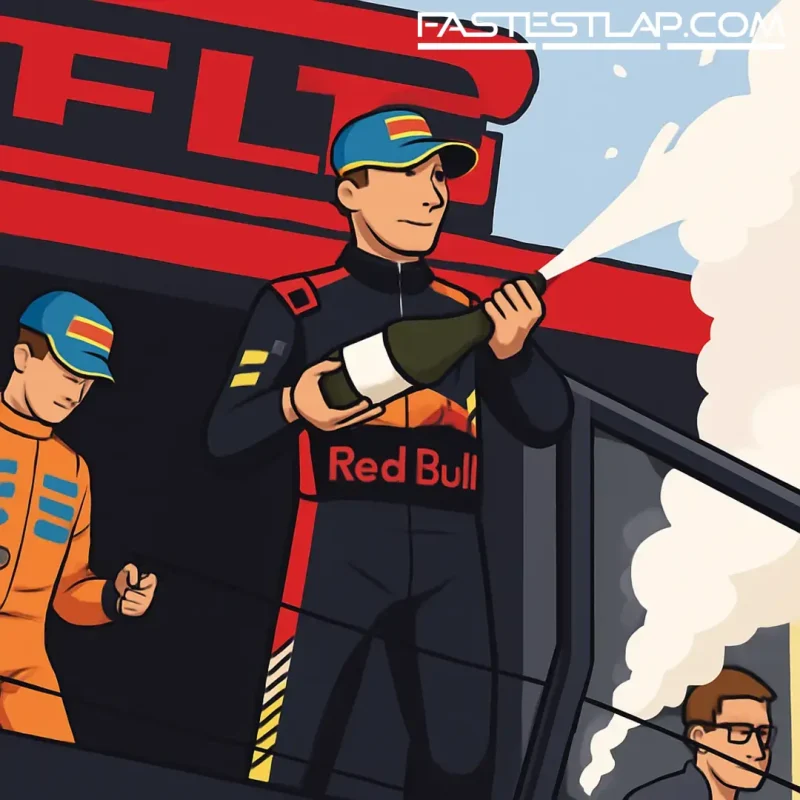McLaren’s call at Monza was the sort of thing that ignites garage whispers and group chats in equal measure. One radio message, four words, plenty of fallout: “Oscar, give it back.”
The trigger was mundane, the consequences anything but. Lando Norris had controlled the team’s private battle for second behind Max Verstappen, then green‑lit Oscar Piastri to box first with assurances there’d be no undercut. That plan was torpedoed by a sticky front-left for Norris a lap later. Four seconds parked, momentum gone, he rejoined behind his teammate. Cue the order.
Piastri’s response crackled with that mix of confusion and calculation you hear when drivers try to do the sporting thing without gifting the universe their lunch money. “We said a slow stop is part of racing. I don’t really get what’s changed,” he said, before adding the crucial rider: if you really want it, I’ll do it. He did, and Norris retook P2. Verstappen, unbothered up the road and very much Verstappen about it, just laughed.
“Ha! Just because he had a slow stop?” he radioed after Gianpiero Lambiase informed him of the swap. Later in the FIA press conference, he side-stepped it with a shrug: not my problem. Not his championship either, as it happens, but for the two in papaya it very much is.
That’s where the debate gets thorny. Was it fair? In the strictest sense, yes: Norris was ahead on merit before a team error distorted the order. Reversing that avoided compounding the crew’s mistake with a championship‑level swing. But fairness in a title race lives on a knife edge, and the optics of instructing the current points leader to cede track position will never land softly.
Timo Glock, never shy of a straight line to the point, distilled the Verstappen subplot on Sky Deutschland: “Verstappen would never have done that.” He’s probably right. Verstappen has built a dynasty on a singular rule — win the fight in front of you — and Monza didn’t look like one he’d concede. That’s not a value judgment so much as a reminder: different teams breed different cultures, and McLaren’s current culture leans collaboration over combat.
For Piastri, it was a moment to show he’s playing the long game. “I think today, it was a fair decision,” he said afterwards. “Lando was ahead the whole race and again, it wasn’t through any fault of his own… Ultimately, whoever wins the championship wants to have won it as much as they can through their own performances and things that they can control, and today, that wasn’t one of those things.”
He went further, nodding to the reality that McLaren’s window can’t just be 2025-deep. There’s a major rules reset next year, uncertainty everywhere, and both drivers are tied to Woking for a while yet. Protect the group, protect the project. That’s the company line — and crucially, it’s the drivers’ line too.
Still, Glock’s warning is more than TV filler: be careful. Do this twice and you’re writing doctrine; do it three times and you’re writing history. The Italian Grand Prix didn’t decide anything on its own, but it did tighten the mood around a title race that’s already compressing. Piastri remains the championship leader, but Monza shaved the comfort off the cushion. If we arrive in Abu Dhabi with a handful of points in it, Sunday’s swap will be radiographed from every angle.
There’s also an unromantic truth about Monza that’s easy to forget in the emotion: the track punishes slow stops brutally. With fewer corners and enormous straights, the delta from a four-second service compared to a clean one becomes painful. If you’re going to pick a circuit where you undo a team’s mistake with a call from the pit wall, this is the most defensible canvas.
And yet, McLaren’s wider promise — let them race unless there’s a team interest at stake — took a dent. You can square that circle by saying “team interest” includes avoiding internal errors deciding a 1-2 order. You can also argue, just as convincingly, that you let your drivers sort it with their right feet and trust the pit crew to win you back the seconds they lost next time. Both views live in a top team. The timing of which one wins tends to follow the standings.
Where does this leave everyone? Verstappen got what he came for: a Monza win and another day where his only real threat was boredom. Norris banked the P2 he’d earned before the wheel nut bit, and Piastri left with a tidy collection of goodwill chips — the kind you only get once or twice a season — plus enough points to keep the upper hand in the fight that really matters.
If McLaren go on to convert this orange surge into silverware, Sunday might read as a footnote about process and principles. If the title goes down to the wire and swings on a handful, it’ll be a chapter. Either way, the call at Parabolica wasn’t just about track position. It was a glimpse into how McLaren intend to run a championship fight: calm heads, collective priorities, and a willingness to live with the fallout.
Just don’t expect Verstappen to play by those rules in red or blue or anything else. He made that clear with one laugh.




